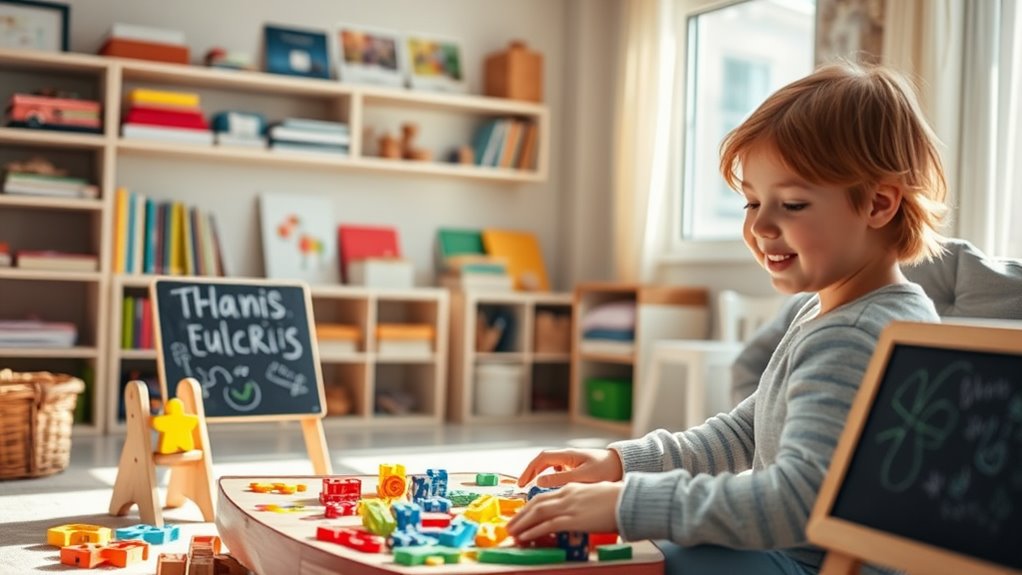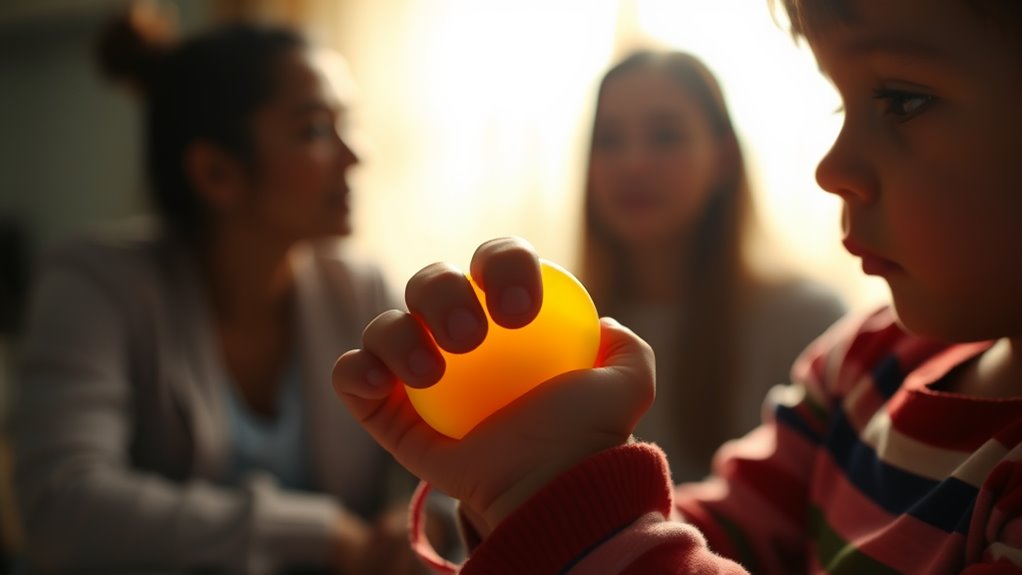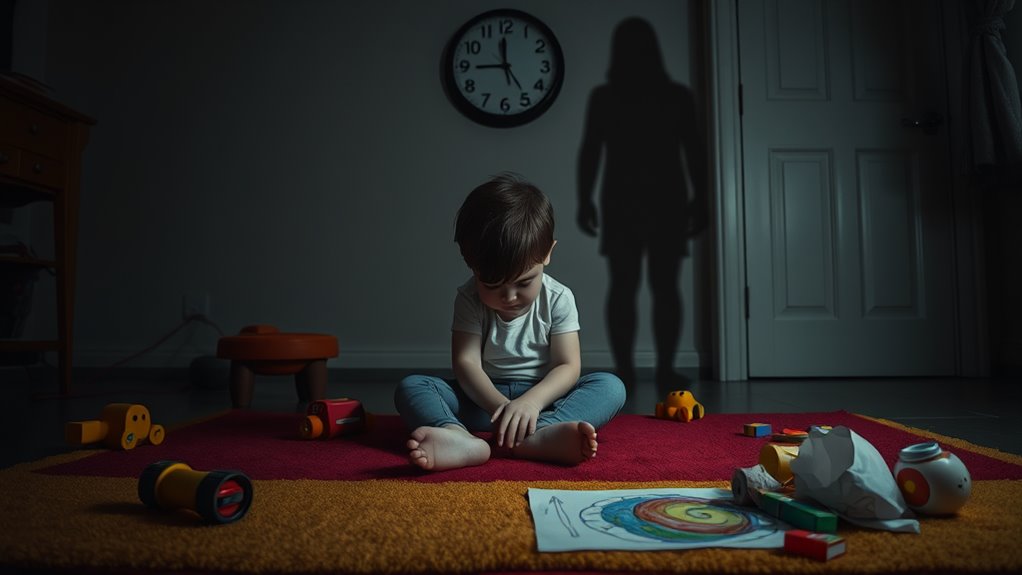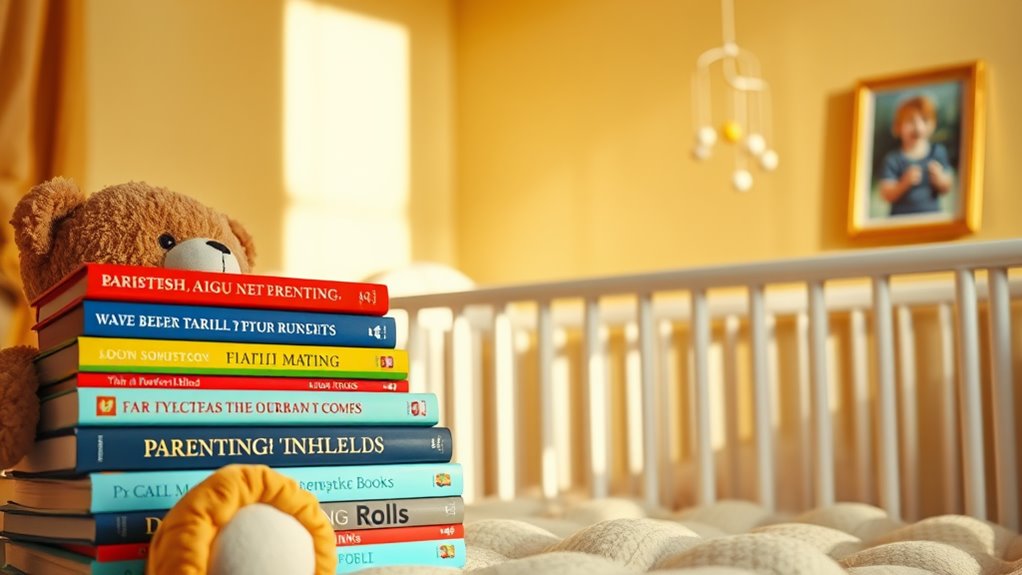10 Signs Your Toddler Is a Genius (And How to Support Them!)
You might notice signs that suggest your toddler’s a genius, like advanced language skills, exceptional memory, and problem-solving abilities. They often ask countless questions, displaying natural curiosity and exploration. High levels of focus during playtime, combined with unique interests, further indicate their giftedness. Pay attention to their creativity and social awareness, as well as their emotional intelligence, including empathy towards others. Supporting your little one involves creating an environment that nurtures these talents and encourages exploration. If you’re intrigued about how to recognize these signs in more detail, you’ll want to keep exploring this topic further.
Key Takeaways
- Advanced language skills, such as complex sentence use and rapid vocabulary acquisition, indicate cognitive maturity in toddlers.
- Exceptional memory, shown through accurate storytelling and character recognition, reflects strong cognitive abilities and emotional connection.
- Inquisitive nature, marked by constant questioning and scientific curiosity, demonstrates a strong cognitive drive and desire for exploration.
- Emotional intelligence, recognized through appropriate emotion expression and empathy, is crucial for social development in gifted children.
- High levels of focus, indicated by prolonged engagement in activities, signal exceptional concentration and potential for future skills development.
Advanced Language Skills
When it comes to spotting a genius toddler, advanced language skills often stand out. If your little one is already stringing together complex sentences or using vocabulary that seems beyond their years, you might be witnessing the early signs of exceptional intelligence.
These kids often engage in language play, turning conversation into a fun game. They love to explore new words, and you might catch them experimenting with phrases or creating their own unique expressions.
Vocabulary expansion is a key indicator of their advanced language skills. They might pick up new words quickly, using them in context, which demonstrates not just memorization but comprehension.
Listening to them discuss their thoughts and feelings can be truly enlightening; they may articulate ideas with surprising clarity and depth. Encouraging this behavior can help nurture their talent. Engage them in conversations, read together, and introduce new vocabulary regularly.
This not only supports their development but also keeps their passion for language alive. Remember, fostering an environment rich in language and communication can make a world of difference in their growth and learning journey.
Curiosity and Exploration
Advanced language skills often go hand in hand with a natural curiosity about the world. If your toddler is constantly asking questions, exploring their environment, or showing interest in how things work, they might be displaying signs of genius. This curiosity is a crucial component of their cognitive development, and it deserves your support.
Encourage their inquisitive nature with hands-on activities. Simple experiments, like mixing baking soda and vinegar, can ignite their interest in science. Building projects with blocks or engaging in art can also foster creativity and problem-solving skills.
Nature exploration is another fantastic way to nurture your toddler’s curiosity. Take them for walks in the park, where they can observe plants, insects, and animals. Encourage them to collect leaves or rocks, and later, you can discuss what they found.
This not only satisfies their curiosity but also helps them develop observational skills.
Exceptional Memory
Demonstrating exceptional memory is another hallmark of a gifted toddler. If your child can recall details from past events or remember the names of characters from books you’ve read together, they might possess a remarkable memory. This ability often manifests in their enjoyment of memory games, where they can easily remember the locations of cards or items. Such activities not only entertain but also enhance their cognitive skills.
You might also notice that your toddler shows a keen interest in storytelling techniques. They can retell stories with incredible accuracy, recalling not just the plot but also the emotions and details that make the tale come alive. Encourage this by asking them to narrate their favorite stories or create new ones based on familiar themes.
Supporting their exceptional memory can be as simple as playing memory-enhancing games or engaging in storytelling sessions. These activities stimulate their minds and help them develop a love for learning.
Celebrate their memory skills, as this can boost their confidence and encourage further exploration of the world around them. With your support, your gifted toddler can thrive and reach their full potential.
Problem-Solving Abilities
Problem-solving abilities are another indicator that your toddler may be gifted. If you notice your child approaching challenges with a unique perspective or finding creative solutions to everyday problems, it could be a sign of their advanced capabilities. For instance, when faced with a puzzle, do they display logical reasoning to figure out how the pieces fit together? This kind of analytical thinking suggests they’re not just guessing—they’re actively engaging their mind to solve the issue.
Additionally, if your toddler often asks “why” or “how” questions, this curiosity showcases their critical thinking skills. They’re not simply accepting information; they want to understand the underlying concepts. Encourage this behavior by providing them with opportunities to explore and experiment. Give them puzzles or open-ended toys that challenge their minds and promote problem-solving.
It’s also beneficial to discuss the process with them as they tackle challenges. Ask questions that guide their thought process, helping them articulate their reasoning. This not only nurtures their problem-solving abilities but also fosters a love for learning. Supporting your child in these endeavors can help them develop their innate talents and pave the way for future success.
High Levels of Focus
Exhibiting high levels of focus can be a strong indicator that your toddler might be gifted. If you notice your child can engage in activities for an extended period, it’s a sign of an impressive attention span. While many toddlers flit from one toy to another, a child with exceptional focus can dive deeply into their interests, exploring them with intensity.
To support your toddler’s concentration, consider these techniques:
-
Create a distraction-free environment****: Minimize noise and clutter during playtime to help them concentrate better.
-
Encourage deep play*: Offer *open-ended toys that promote imaginative play, allowing them to immerse themselves fully in their activities.
-
Set a routine: Establishing a daily schedule can help your child anticipate and focus on tasks, fostering a sense of security and enhancing their attention.
Recognizing and nurturing your toddler’s ability to concentrate won’t only affirm their potential but also help them develop skills that will serve them well in the future.
Embrace their focus, and you’ll find ways to encourage their curiosity and creativity!
Early Reading Skills
Many parents are surprised when their toddlers show early reading skills, which can be a sign of giftedness. If your child is recognizing letters, sounding out words, or even attempting to read simple books, it’s worth paying attention. Early reading often indicates strong phonemic awareness—the ability to hear and manipulate sounds in words—which is crucial for developing reading skills.
You might notice your toddler enjoying storytime or asking questions about the story, showing early signs of reading comprehension. Encouraging this interest is essential. You can support their budding skills by providing a rich language environment. Read together daily, and choose a variety of books that spark their curiosity.
Engaging them in discussions about the stories can enhance their comprehension. Ask open-ended questions to stimulate their thinking and encourage them to predict what might happen next in the story.
Additionally, consider incorporating playful activities that emphasize phonics and sound recognition, like rhyming games or letter scavenger hunts.
Creative Thinking
Recognizing letters and reading early can be impressive, but another sign of a gifted toddler is their ability to think creatively. If your child engages in imaginative play or shows a flair for artistic expression, it’s a strong indicator of their creative thinking skills.
Here are a few ways to nurture and support this talent:
-
Encourage Imaginative Play: Provide props and costumes that inspire your toddler to create stories and scenarios. This kind of play boosts their problem-solving skills and fosters innovation.
-
Offer Art Supplies: Stock up on crayons, paints, and various materials for your child to experiment with. Artistic expression allows them to explore their feelings and thoughts, enhancing their creativity.
-
Limit Screen Time: Reducing exposure to screens can encourage your toddler to engage in more hands-on activities. This gives them the space to imagine and create without distractions.
Social Awareness
Social awareness is another sign of a gifted toddler, as it reflects their ability to understand and respond to the emotions and needs of others. If your child shows keen interest in social interactions, such as noticing when a friend is upset or trying to comfort them, it’s a positive indicator of their social awareness.
This early stage of empathy development can manifest in various ways, like sharing toys or helping others in need, which are essential skills for building relationships.
To nurture this trait, encourage playdates and group activities, allowing your toddler to engage with peers. These experiences can enhance their understanding of social cues and emotional responses.
When your child demonstrates empathy, acknowledge their feelings and reinforce the behavior with praise. You might say, “You made your friend smile when you shared your toy. That was really kind!”
Reading books with diverse characters and scenarios can also help expand their perspective on different emotions.
Strong Emotional Intelligence
Building on the foundation of social awareness, strong emotional intelligence in toddlers is another indicator of their giftedness. If your child demonstrates an ability to understand and manage their emotions, they might be on the path to greatness.
Emotional intelligence encompasses not just self-awareness but also empathy development, which is crucial for building relationships.
Here are three signs of strong emotional intelligence in toddlers:
-
Emotional Regulation: Your toddler can express their feelings appropriately, whether it’s happiness, frustration, or sadness. They may even use calming techniques, like deep breathing, when upset.
-
Empathy Development: If your child shows concern for others’ feelings, like comforting a friend who’s crying, it’s a clear sign they’re developing empathy. They can relate to what others are going through, which is a vital skill.
-
Conflict Resolution: When disagreements arise, your toddler might seek solutions rather than escalate the situation. They try to understand different perspectives, showcasing their emotional maturity.
Supporting your child’s emotional intelligence can nurture their genius, so encourage open discussions about feelings and model healthy emotional expressions.
Unusual Interests and Hobbies
Uncovering your toddler’s unusual interests and hobbies can be a delightful indicator of their potential genius. If they’re fascinated by unique collections—like rocks, leaves, or even toy figurines—it’s a sign they’re observing the world in a special way.
These collections often reflect their curiosity and ability to focus on details that others might overlook.
Imaginative play also plays a crucial role in their development. If your child spends hours creating elaborate scenarios or inventing games, it’s a clear indication of their creative thinking.
They might turn everyday objects into props for their stories, showcasing their ability to think outside the box.
As a parent, you can support these interests by providing materials and opportunities to explore them further.
Encourage their unique collections by helping them find new items or creating display areas. For imaginative play, consider open-ended toys that allow for creativity and role-playing.
Frequently Asked Questions
How Can I Identify a Gifted Toddler at Home?
To identify a gifted toddler at home, observe their creativity expression and unique learning styles. If they show curiosity, solve problems innovatively, or express ideas vividly, you might be witnessing exceptional potential in your child.
What Are the Signs of Anxiety in Gifted Toddlers?
When observing toddler behavior, watch for anxiety symptoms like excessive clinginess, difficulty sleeping, or sudden mood changes. These signs might indicate your child’s feeling overwhelmed, so providing a comforting environment can help ease their anxiety.
Should I Enroll My Gifted Toddler in Advanced Programs?
If you’re considering enrolling your gifted toddler in advanced programs, early intervention can be crucial. Advanced learning opportunities might foster their potential, but ensure it aligns with their interests and emotional readiness for the challenges.
How Do I Balance My Toddler’s Genius With Playtime?
Balancing your toddler’s genius with playtime’s like mixing colors; each brings out the other. Incorporate playtime activities that nurture creativity—think art, puzzles, or imaginative games—to ensure their bright mind thrives alongside joyful exploration.
Are Gifted Toddlers More Prone to Behavioral Issues?
Gifted toddlers can indeed face behavioral challenges, often stemming from their heightened sensitivities or unmet intellectual needs. It’s important to recognize these tendencies and provide appropriate support to help them navigate their feelings and behaviors effectively.





